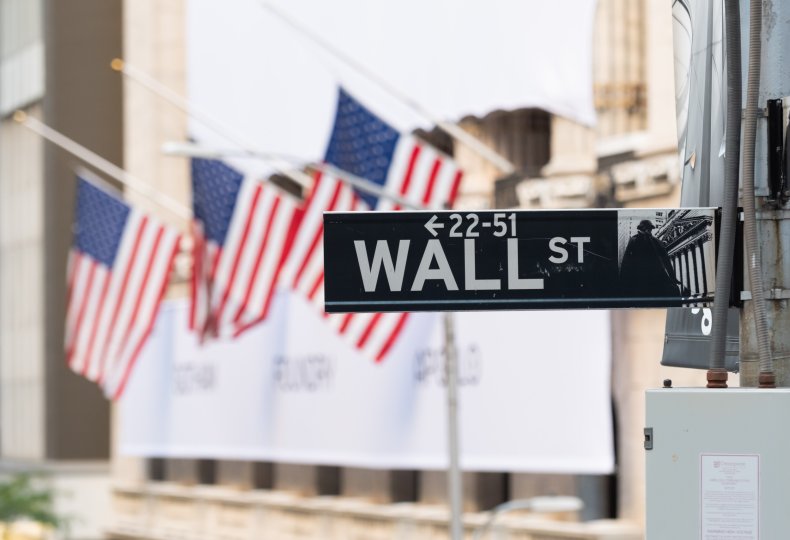
In a nail-biter finish that went down to the last few minutes of the last day, one of the stock market's most reliable election indicators just signaled its prediction for who will win the 2020 presidential election: By just six-tenths of a percentage point, it's Joe Biden.
The so-called Presidential Predictor, which is based on how the S&P 500 performs in the final three months before an election, has correctly called 20 out of the last 23 presidential winners, for an 87 percent accuracy rate, and has gotten the next occupant of the White House right in every presidential election year since Ronald Reagan won a second term in 1984. "It's not a statistically significant sample, as any statistician would tell you," says Sam Stovall, chief investment strategist for CFRA. "But it has real merit because it tends to accurately reflect how much investors dislike uncertainty."
The way the indicator works is simple: If stocks, as measured by the S&P, move higher in the three full months before a presidential election, the incumbent party tends to stay in office—in this case, Donald Trump. If stock prices instead fall from August through October, the party that's been out of office typically wins. By the end of today, the final trading day of this election season's last three full months, the market was down from its closing point on July 31, although by less one percentage point.
Why does the indicator work? LPL Financial chief market strategist Ryan Detrick explains it this way: "Maybe Wall Street can sense there is change in the air and this leads to uncertainty over what the new leadership might look like, so there is selling. Compare this when markets feel comfortable with the incumbent party winning, as they likely know what to expect based on the previous four years."
Wall Street watchers caution, though, that the three times the indicator has failed in the past were during periods of great geopolitical unrest—a description that certainly fits the COVID-19 global pandemic. The previous three times and the events that marked them: In 1956, when Dwight Eisenhower defeated Adlai Stevenson to win a second term, Egypt had nationalized the Suez Canal in the month before the election, which was then followed by a military attack by Israel, France and Great Britain. When Richard Nixon defeated Hubert Humphrey in 1968, the country was beset by strife over the Vietnam war, the assassinations of Martin Luther King, Jr. and Robert Kennedy and there were widespread protests across the country. In 1980, when Ronald Reagan beat Jimmy Carter, the Iranian hostage crisis dominated the headlines.
In other words, says Stovall, take the indicator with a grain of salt and know it can be wrong, especially in times of great turmoil. "It's a good guide, not gospel," he says.
This year too, it's noteworthy that the indicator didn't signal a Biden victory until the very end of the three-month period. Up until this week's market rout—Wall Street's worst week since the beginning of the pandemic in March—the Presidential Predictor seemed to point to Donald Trump winning a second term. And the finish was closer than any time since at least 1944; if the S&P had closed just a couple of points higher, Trump would have been signaled the winner. The last time the outcome was anywhere as close was in 2000, when the S&P 500 fell one-tenth of a percentage point in the three months prior to the election, just barely signaling that George W. Bush would beat Al Gore. That prediction ultimately turned out to be true but the hotly contested election was very close and a winner wasn't officially declared until the second week of December.
As Detrick, looking at various market indicators, said of this year's election in a recent blog post, "We think it's going to be a lot closer than the polls may suggest right now, similar to what we saw in 2016."
Though the indicator doesn't say anything about the prospects for Congressional races, Stovall points out that, from an investor's view point, a blue wave in which Democrats don't only win the presidency but also take the House and Senate too might not be a bad outcome. Of the seven such "Democratic trifectas" that have occurred since 1944, he notes, stock prices have tended to drop immediately following the election in November, only to rebound strongly the following month and year. The year following a Democratic sweep, he found that stock prices rose 13 percent on average, vs. a gain of 8 percent in a typical post-election year.
Should investors then be rooting for a blue wave? Not necessarily, Stovall says. "The best course is never to base your investing decisions on short-term events; you want to develop a long-term saving and investing plan based on your needs and stick to it," he says. "Let the presidential election dominate the headlines but don't let it influence your bottom line."
Joe Biden Will Win, Says Indicator that Has Called Every Election Since '84 - Newsweek
Read More
Bagikan Berita Ini

















0 Response to "Joe Biden Will Win, Says Indicator that Has Called Every Election Since '84 - Newsweek"
Post a Comment